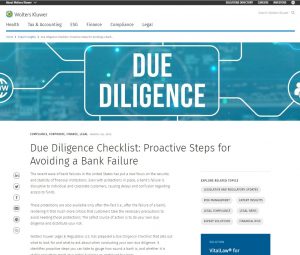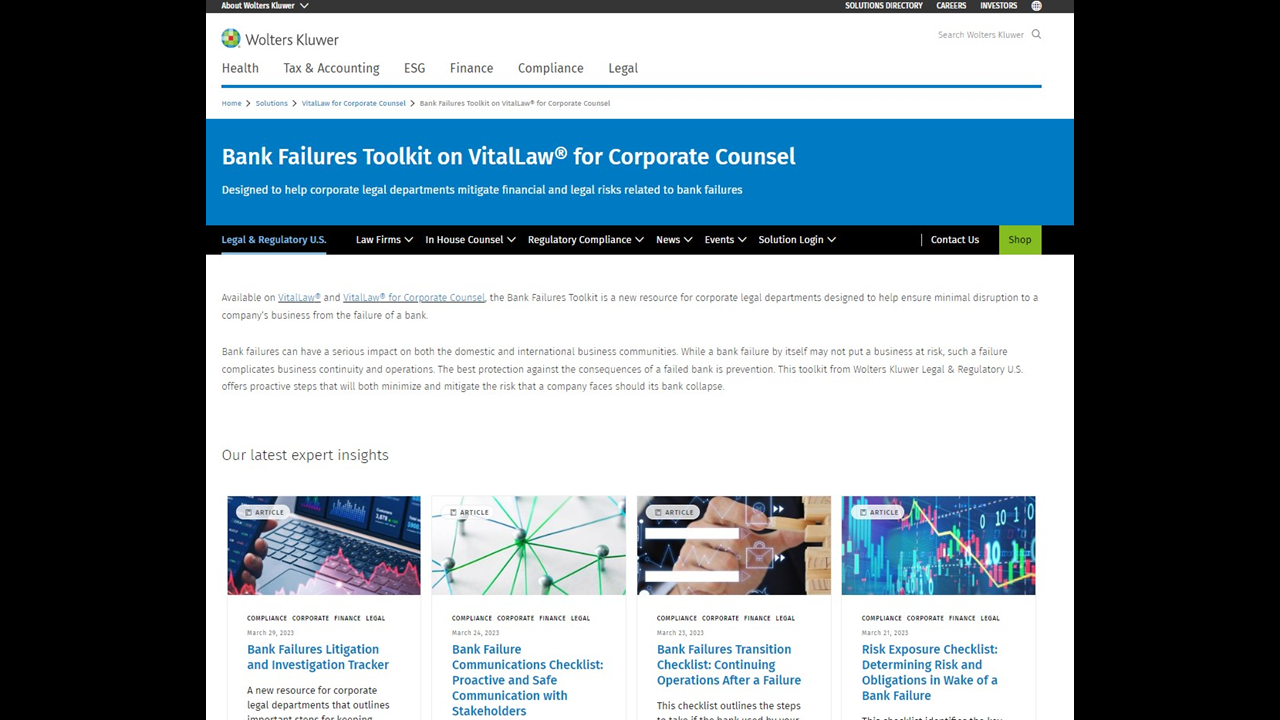In the wake of the recent failures of Silicon Valley Bank and Signature Bank, Wolters Kluwer Legal & Regulatory U.S. has launched a new resource, intended for corporate legal departments, that provides a collection of guides and checklists to help companies avoid a bank failure and take action when a failure occurs, as well as a tracker to follow related lawsuits and investigations.
The Bank Failures Toolkit is available on WK’s VitalLaw and VitalLaw for Corporate Counsel research platform, as well as free for anyone to access through WK’s website.
“The best protection against the consequences of a failed bank is prevention,” WK says. “This toolkit offers proactive steps that will both minimize and mitigate the risk that a company faces should its bank collapse.”
The toolkit provides five guides and checklists:
 Guide to Bank Failures, which identifies the common indicators that a bank is at risk of failing and the role of the FDIC and other stakeholders in mitigating the effects of that failure. It includes a series of FAQs addressing the effects of a failed bank and how to mitigate risk.
Guide to Bank Failures, which identifies the common indicators that a bank is at risk of failing and the role of the FDIC and other stakeholders in mitigating the effects of that failure. It includes a series of FAQs addressing the effects of a failed bank and how to mitigate risk.- Due Diligence Checklist, which sets out what to look for and what to ask about when conducting your own due diligence on a bank.
- Risk Exposure Checklist, outlines the process for determining your risk and identifying any financial or legal obligations that may be impacted by a bank failure.
- Transition Checklist, which outlines the steps a business should take if its bank fails, including steps to ensure continuing access to funds on deposit and for ensuring your company’s obligations are met.
- Communications Checklist, which identifies how a company impacted by a bank failure should communicate with employees, shareholders, customers, vendors and service providers.
The toolkit also includes the Bank Failures Litigation and Investigations Tracker, which provides updates on litigation and investigations related to recent bank failures.
“In light of a recent academic study that indicated there are 186 other banks that could be at risk if uninsured deposit withdrawals cause even small bank runs, it is essential that corporate and outside legal counsel have measures in place to ensure that the transition of accounts from a failed bank to an FDIC-managed successor bank goes as smoothly as possible and to ensure the least amount of disruption to their own client’s business operations,” said John Pachkowski, senior legal analyst at Wolters Kluwer Legal & Regulatory U.S.
 Robert Ambrogi Blog
Robert Ambrogi Blog